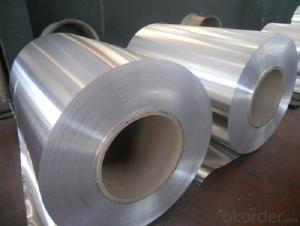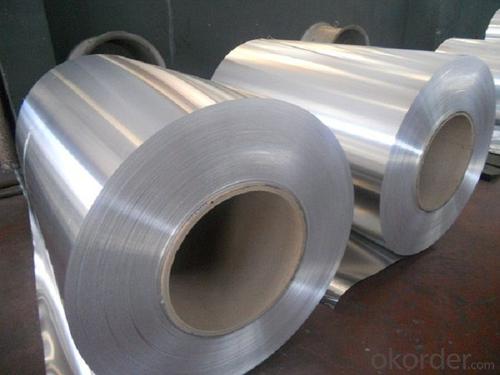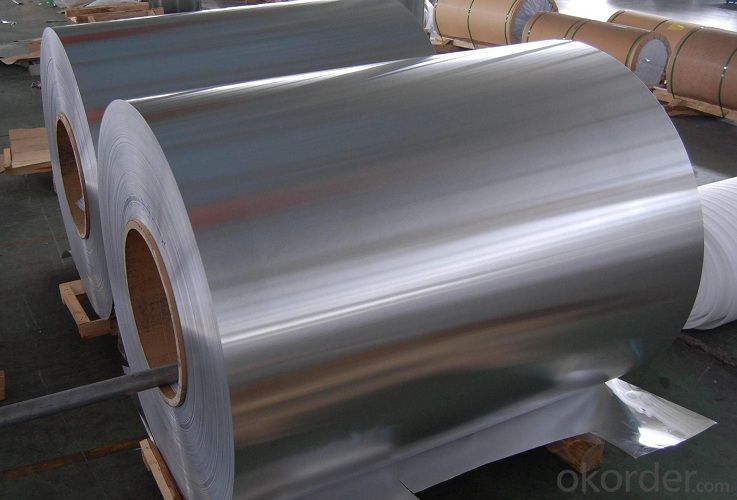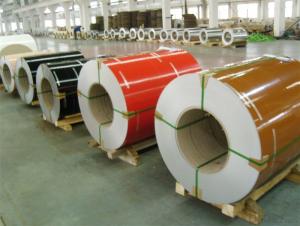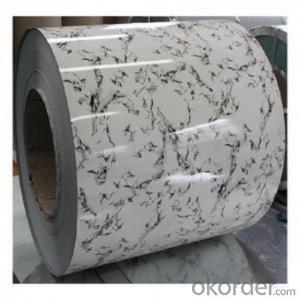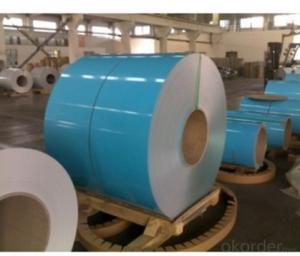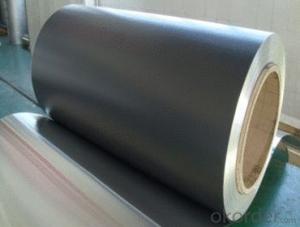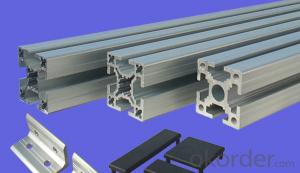PVDF Color Coated Aluminum Coil - Wide Range, ISO9001 Certified
- Loading Port:
- Shanghai
- Payment Terms:
- TT OR LC
- Min Order Qty:
- 2.5
- Supply Capability:
- 5000 m.t./month
OKorder Service Pledge
OKorder Financial Service
You Might Also Like
Specification
Pipeelines Covered Roofing Aluminium Coil
l Product Information
1 | Alloy | A1100 A3003 H16 H18 etc |
2 | Thickness | 0.022mm-1.5mm |
3 | Width | 200mm-1600mm |
4 | Standard width | 1240mm 1250mm 1260mm |
5 | Coating face | PE or PVDF |
6 | Gloss | meet the customer requirement |
7 | PVDFcoating | more than 25 micron |
8 | PE coating | more than 18 micron |
9 | Surface treatment | brushed |
10 | Colors | various colours to choose |
11 | Application | Acp, HPL, fireproof board, building decoration materials etc |
12 | Features | anti-corrosion durable |
l Packaging & Delivery
Packaging detail: Sea Worthy Wooden pallet
Delivery detail: About 25 days
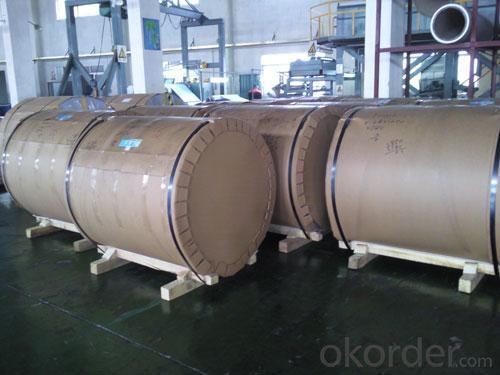
l Company Profile
CNBM International Corporation, China National Building Materials (Group) Corporation, is one of the largest companies in China building material & equipment industry, with 42,800 employees and sales in 2005 of US Dollar 4.395 billion. In 2006, China National Building Material Company Limited was listed on Hong Kong Stock Market with the stock code as 3323.
Aluminium Products have been our featured products. We have specialized in aluminium products for about a decade and have sold our good quality aluminium products to the worldwide.
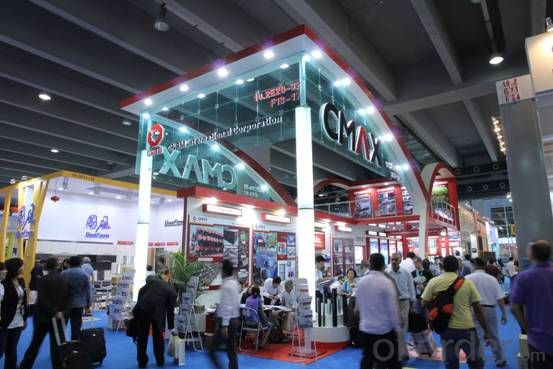
l CNBM World Wide
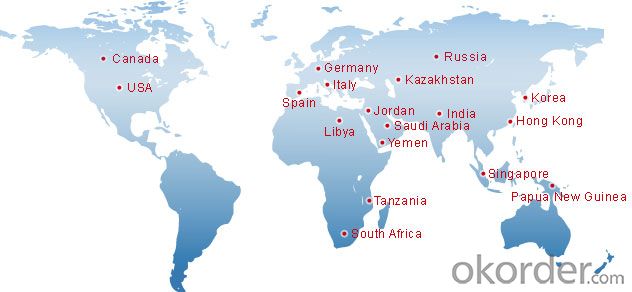
l Product Images
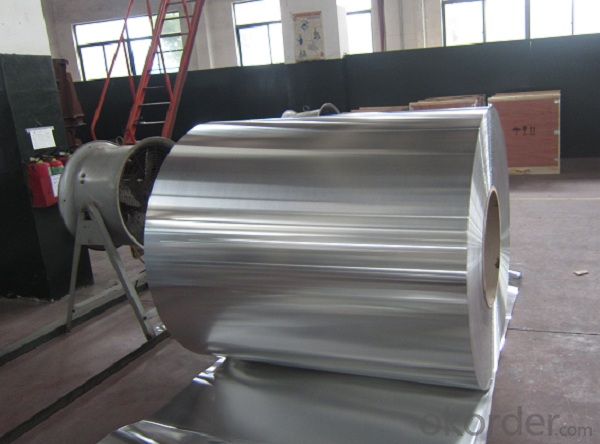
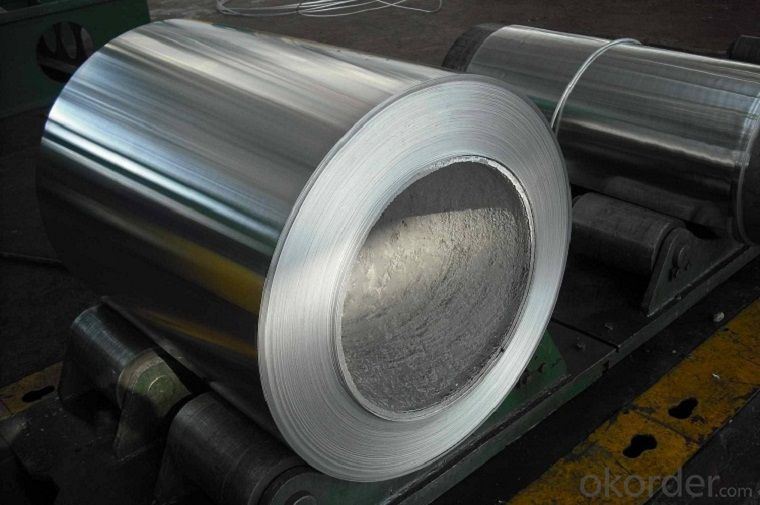
l Certificates
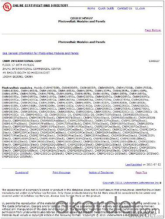
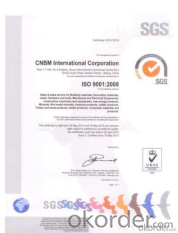
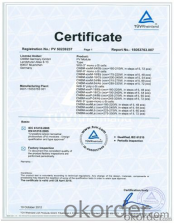
l FAQ
Q: Do you provide free samples?
A: Yes, free samples will be sent to you on freight at destination.
Q: Can I get your latest products catalogue?
A: Yes, it will be sent to you in no time.
Q: What is the MOQ?
A: 2.5 tons
Q: What are your payment terms?
A: We accept L/C, T/T.
- Q: Is it safe or practical to utilize aluminum coils in kitchen settings?
- <p>Aluminum coils can be used in the kitchen, but with certain considerations. They are often used in cookware due to their excellent heat conductivity, which allows for even heating. However, there are concerns about aluminum leaching into food, especially at high temperatures or in acidic environments, which could potentially have health implications. It's recommended to use aluminum cookware with a protective coating or to opt for cookware made from other materials like stainless steel or cast iron if there are health concerns. Always check the manufacturer's guidelines for safe usage and cleaning to ensure longevity and safety.</p>
- Q: This question asks for the uses or applications of aluminum coil in various industries or contexts.
- <p>Aluminum coil has a wide range of applications due to its lightweight, corrosion resistance, and high thermal conductivity. It is commonly used in construction for roofing and siding, in the automotive industry for parts and heat exchangers, and in the packaging industry for food and beverage cans. Additionally, aluminum coil is utilized in electrical applications such as transformers and electrical wiring due to its excellent conductivity. It is also employed in the manufacturing of household appliances, furniture, and various consumer goods. The coil's malleability makes it suitable for forming into various shapes and sizes, enhancing its versatility across different sectors.</p>
- Q: My budgies took at bath in an aluminum pie tin today. At first they bit it just because it was their first time. Should I be worried that they might get poisoned?
- poisoned by what? if aluminum was poisonous why are aluminum foil and aluminum cooking utensils legal?
- Q: This question asks about the environmental effects that aluminum coils may have on the environment.
- <p>The environmental impacts of aluminum coils are multifaceted. Aluminum production, particularly the extraction and refining process, consumes significant energy and can result in greenhouse gas emissions. The mining of bauxite, the primary source of aluminum, can lead to deforestation and habitat destruction. However, aluminum coils are recyclable, which reduces their environmental footprint compared to non-recyclable materials. When recycled, aluminum saves up to 95% of the energy needed to produce new aluminum, reducing emissions and waste. Despite these benefits, improper disposal or incineration of aluminum can still contribute to pollution. Overall, the environmental impact of aluminum coils is complex, with both negative and positive aspects depending on production methods and waste management practices.</p>
- Q: What is the impact of alloy purity on the performance of aluminum coils?
- The impact of alloy purity on the performance of aluminum coils is significant. Higher alloy purity leads to improved conductivity, strength, and corrosion resistance of the coils. It also enhances the overall efficiency and longevity of the coils. Conversely, lower alloy purity may result in reduced performance, lower conductivity, and increased susceptibility to corrosion. Therefore, ensuring high alloy purity is crucial for maximizing the performance and durability of aluminum coils.
- Q: What are the different color options for anodized aluminum coils?
- The different color options for anodized aluminum coils include silver, gold, bronze, black, blue, red, green, and various shades of gray.
- Q: What are the different coil embossing options available for aluminum coils?
- Aluminum coils offer a range of coil embossing options, each with its own unique textures and patterns. Stucco, diamond, and 3-bar embossing are some common options for aluminum coils. Stucco embossing creates a textured pattern similar to a stucco wall, making it popular for its ability to hide imperfections and provide an attractive finish. It finds applications in industries like construction and automotive. Diamond embossing, on the other hand, creates a diamond-shaped pattern that enhances the coil's strength and durability. It is commonly used in flooring, roofing, and decorative applications. 3-bar embossing adds three parallel lines to the aluminum coil's surface, providing a visually appealing look and enhanced traction. This makes it ideal for applications requiring slip resistance, such as ramps and walkways. In addition to these options, there are other embossing patterns available, such as wood grain, hammer tone, and leather grain embossing. These patterns mimic natural materials and are often used in interior design and architecture. The choice of embossing option depends on specific requirements and desired aesthetics. Manufacturers and customers can select the most suitable pattern based on factors like durability, texture, slip resistance, and overall design intent.
- Q: How do aluminum coils perform in coastal areas with high salt content?
- Aluminum coils generally perform well in coastal areas with high salt content due to their corrosion-resistant properties. The protective oxide layer on the surface of aluminum helps to resist the corrosive effects of salt air and prevent the formation of rust. However, regular maintenance and cleaning are still recommended to ensure optimal performance and longevity of the aluminum coils in such environments.
- Q: How are aluminum coils different from other types of metal coils?
- Aluminum coils differ from other types of metal coils in several ways. Firstly, aluminum is a lightweight metal, making aluminum coils much lighter compared to coils made from other metals such as steel or copper. This lightweight property of aluminum makes it a popular choice for various industries where weight is a critical factor, such as aerospace and automotive industries. Secondly, aluminum coils have excellent corrosion resistance. Unlike other metals, aluminum forms a protective oxide layer on its surface when exposed to air, preventing further corrosion. This resistance to corrosion makes aluminum coils suitable for applications in humid and corrosive environments, such as marine or coastal areas. Additionally, aluminum coils possess high thermal conductivity. This means that aluminum can efficiently conduct heat, making it an ideal material for heat transfer applications like HVAC systems, refrigeration units, and radiators. The high thermal conductivity of aluminum coils allows for more efficient cooling or heating processes. Furthermore, aluminum is highly malleable and ductile, which means it can be easily shaped and formed without losing its structural integrity. This malleability makes aluminum coils flexible and versatile, allowing them to be manufactured into various shapes and sizes to meet specific industry requirements. Lastly, aluminum is a highly sustainable and recyclable material. It can be recycled repeatedly without losing its quality or performance, making aluminum coils an environmentally friendly choice. This recyclability factor contributes to reducing the environmental impact and promoting a circular economy. In summary, aluminum coils stand out from other metal coils due to their lightweight, corrosion resistance, high thermal conductivity, malleability, and recyclability. These unique properties make aluminum coils a preferred choice for a wide range of applications across different industries.
- Q: Calculate the specific heat of aluminum (in calories).mass of aluminum25.0 gmass of water23.2ginitial temperature of aluminum98.0Cinitial temperature of water20.0Cfinal temperature of water33.0Cround to three decimal places, do not include units.
- Heat gained by water = heat lost by aluminum Heat = H mass = m specific heat =c change in temperature = dT H = mcdT mcdT for water = mcdT for Al (23.2)(1.00)(13) = (25.0)(c(Al))(33-98) c(Al) = (23.2)(1.00)(13)/(25.0)(65) = 0.186 This value is just a bit below the known value of specific heat for aluminum, where c = 0.217 cal/g.C
Send your message to us
PVDF Color Coated Aluminum Coil - Wide Range, ISO9001 Certified
- Loading Port:
- Shanghai
- Payment Terms:
- TT OR LC
- Min Order Qty:
- 2.5
- Supply Capability:
- 5000 m.t./month
OKorder Service Pledge
OKorder Financial Service
Similar products
Hot products
Hot Searches
Related keywords
